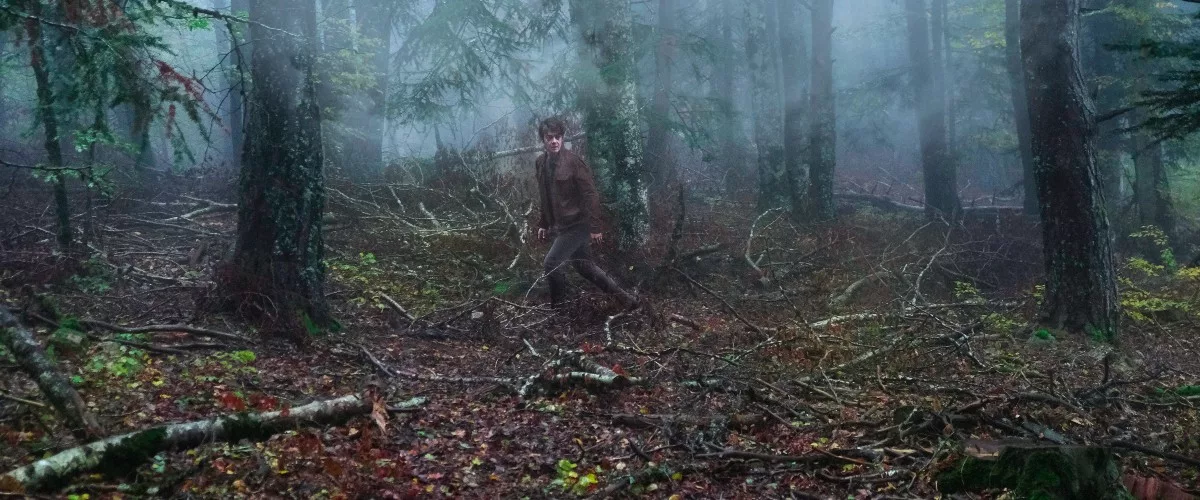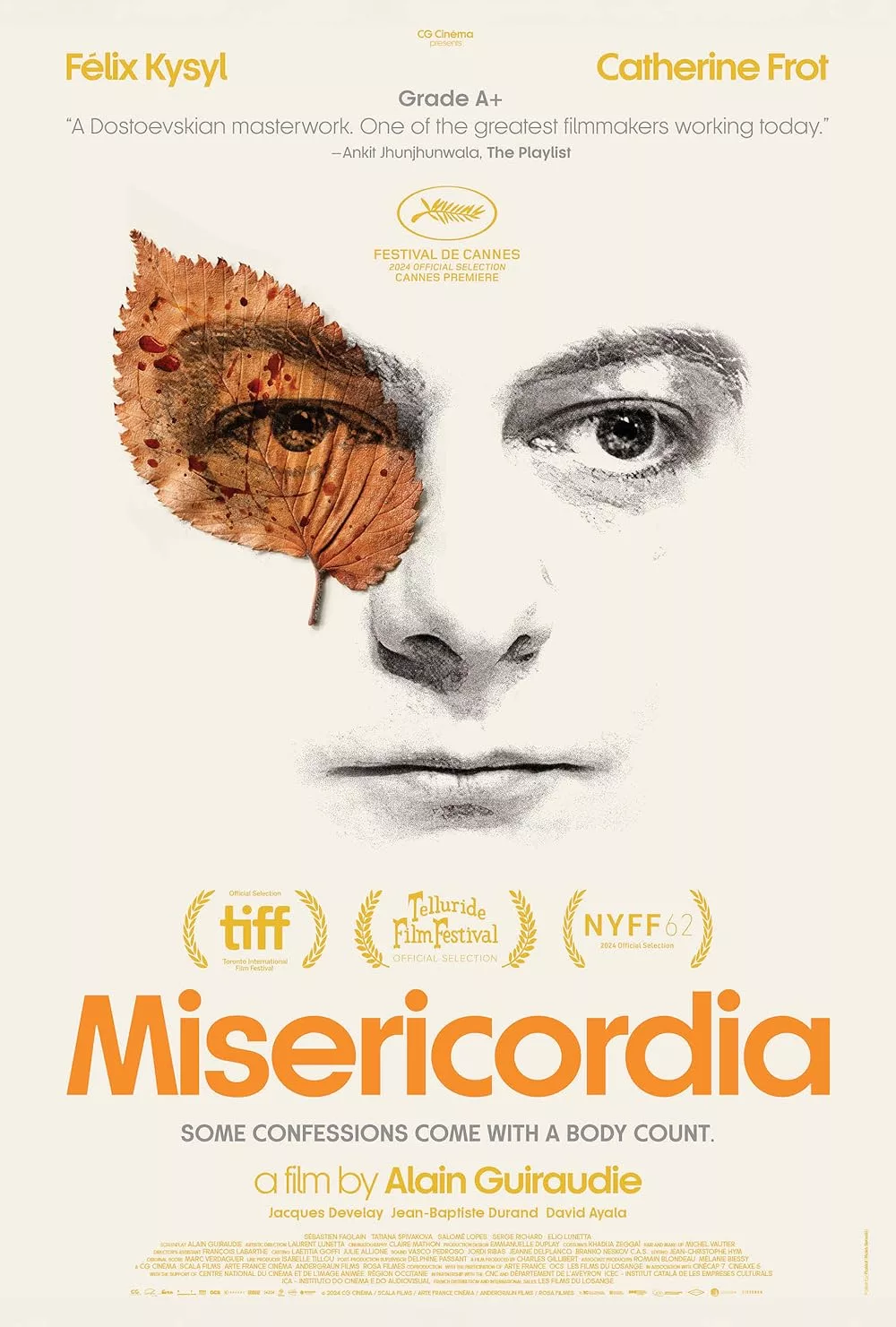A death in a small town raises some uncomfortable questions in “Misericordia,” a wryly amusing French neo-noir about obvious, slippery people. Jérémie (Félix Kysyl), a former resident of picturesque Saint-Martial, returns there after the death of his estranged mentor, a beloved local baker. Everybody wants Jérémie, but before they can admit it, they also want to know: what does Jérémie want with them and why does he choose to stick around after the funeral?
A morbid comedy of errors follows as Jérémie tries to follow his errant desires while everybody else in Saint-Martial invades his privacy and destroys his peace. Jérémie’s not exactly a victim, but it’s still very funny to watch him struggle to normalize, let alone roll with whatever new and unexpected development befalls him.
This sort of rigorously scripted, but leisurely paced neo-noir has become a specialty for writer/director Alain Guiraudie, who achieved a new level of recognition with his acclaimed 2013 Hitchcock-goes-cruising thriller “Stranger by the Lake.” Like that movie and its other successors, “Misericordia” often feels like a metaphysical, character-driven drama about the mysteries and absurdities of human attraction.
Guiraudie’s existential probing and surreal, acidic sense of humor have only grown more prominent since “Stranger by the Lake,” especially in “Nobody’s Hero,” a discomfiting 2022 farce about a hateful loner who gets involved with a sex worker and also a suspected terrorist. “Misericordia” resembles those earlier movies, which, if you’ve seen any of them, makes it easier to trust Guiraudie as he leads you along an obscure path.
Guiraudie’s characteristic focus on his characters’ and therefore his actors’ performances accounts for a good part of “Misericordia”’s elusive charm. Jérémie can also sometimes be hard to read, though his stern-looking face is usually presented in warm, patient medium close-ups. Kysyl’s bristling physicality also gets a fitting showcase as he and his cast members circle each other. Much of the plot concerns Jérémie’s involvement in a fairly major, spoiler-unfriendly incident; he spends most of the movie trying to avoid suspicion. Saint-Martial’s stereotypically nosy residents make that impossible for Jérémie as everyone tries to (literally) climb into bed with him, including the baker’s widow Martine (Catherine Frot) and the local priest Pierre (Jacques Develay).
That said, while these characters have clear intentions, their inner desires are often just as hard to pin down. Guiraudie lets that conceit play out through a series of self-justifying conversations between Jérémie and Saint-Martial’s residents. They ask him questions and, while his answers change all the time, they usually seem to believe him (he’s a good actor). Then again, Jérémie usually goes a little too far, or says something that makes it impossible to fully trust him, so each new scene either introduces or escalates the story’s slow-mounting tension until it assumes a humorous and sometimes eerie intensity.
Some later conversations with Pierre speak to the movie’s unexpected focus on Jérémie’s hidden inner life. It’s still easy enough to understand what he’s about even as he withholds or flat-out lies about his behavior and motives. The fact that Jérémie is a gay, unattached, and handsome man leads the Saint-Martial residents to some conclusions about his character. They try to take advantage of him; he sometimes seems to give them what they want.
Some of the funniest moments in “Misericordia” are the ones where the movie’s title—Latin for “mercy”—comes into play, since the Saint-Martians all think that they have Jérémie over a barrel even as they beg him to flirt, entertain, and humor them whenever they want. In Jérémie, the townsfolk see somebody that they can project their barely repressed thoughts and desires. It’s harder to know what he sees in them.
What do we expect from others when we offer them charity and compassion, and what do we really want from the strangers in our midst? Guiraudie keeps you guessing throughout “Misericordia”, though his characterizations remains comprehensive throughout. Jérémie’s brooding, withholding personality creates its own center of attraction, but beyond that, he’s frustratingly withdrawn. That’s the crux of Guiraudie’s project, this notion that we may never know if there’s an interior to these characters and Jérémie in particular.
We watch as Jérémie tumbles from one potentially compromising interaction to the next and all the while remain focused on noir-ish plot twists and naturalistic, snappy dialogue which slowly unravels the movie’s cynical, metaphysical, earthy, and often dryly hilarious sensibility. It’s not a hard movie to follow or fall for, as fans of Guiraudie’s earlier movies already know. He commands our attention even when his characters are either too ridiculous or too petty to be taken seriously. Each new scene in “Misericordia” upends viewers’ expectations, and Guiraudie never lets up long enough for you to wonder if maybe he’s messing with you, too.




















